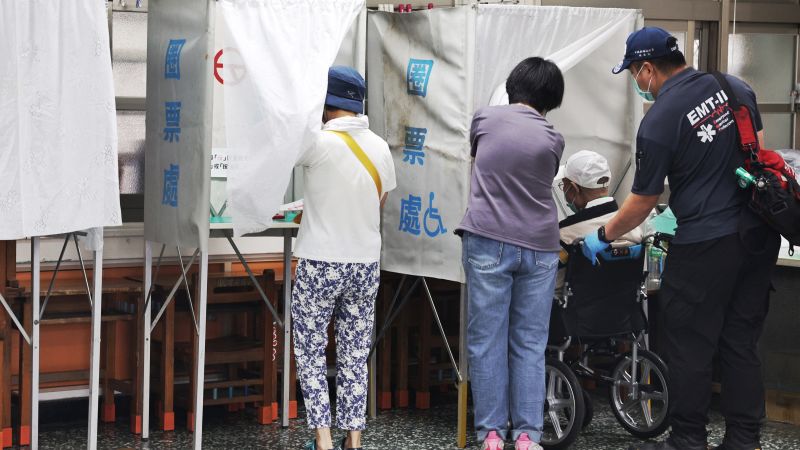Taiwan’s Ruling Party Faces Legislative Hurdle as Recall Efforts Against Opposition Lawmakers Fail
Taiwan’s Ruling Party Faces Legislative Hurdle as Recall Efforts Against Opposition Lawmakers Fail

Taipei, Taiwan – Efforts by Taiwan’s ruling Democratic Progressive Party (DPP) to shift the balance of power in the legislature suffered a significant blow this weekend as voters rejected a widespread recall bid against opposition Nationalist Party (KMT) lawmakers. Preliminary results from Saturday’s closely watched elections indicate that none of the targeted two dozen KMT legislators were successfully ousted, dimming the DPP’s hopes of securing a majority in the self-ruled island’s parliament.
Despite winning last year’s presidential election, the independence-leaning DPP has faced legislative gridlock due to the combined majority held by the China-friendly KMT and the smaller Taiwan People’s Party. The failed recall attempts mean President Lai Ching-te’s administration will likely continue to face strong resistance to its agenda, including key legislation like the defense budget, ahead of local elections next year and the next presidential poll in 2028.
Official results from the Central Election Commission are expected on August 1, with another recall vote targeting seven more KMT lawmakers scheduled for August 23. KMT Chairman Eric Chu hailed the outcome as a testament to Taiwan’s mature democracy, asserting that voters chose stability over political infighting. Conversely, DPP Secretary-General Lin Yu-chang stated the party humbly accepts the results and will reflect on public sentiment.
The recall campaigns, which intensified tensions between factions favoring the status quo and those seeking closer ties with Beijing, saw supporters accuse KMT lawmakers of obstructing critical legislation and making changes perceived as favoring China. The KMT, however, denounced the recalls as political retaliation by the DPP, claiming they undermined Taiwan’s democratic system. The outcome underscores the complex political landscape in Taiwan, particularly concerning its relationship with mainland China, which considers the island its own territory.
Disclaimer: This content is aggregated from public sources online. Please verify information independently. If you believe your rights have been infringed, contact us for removal.